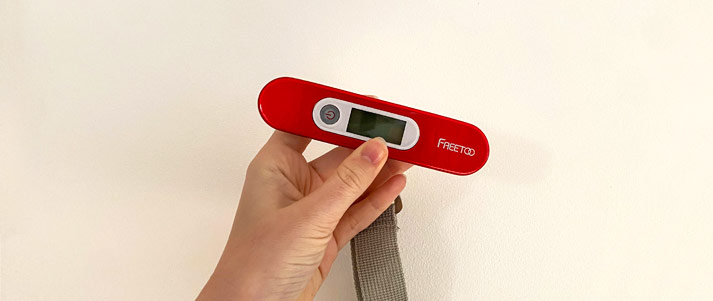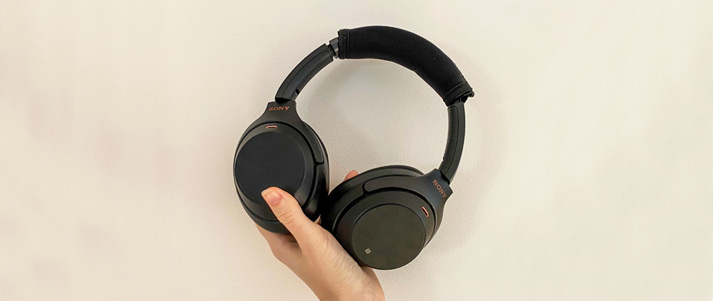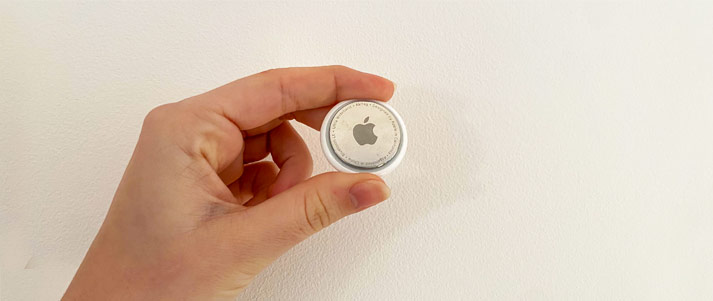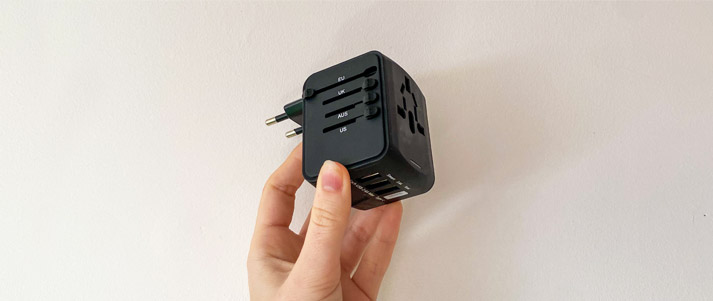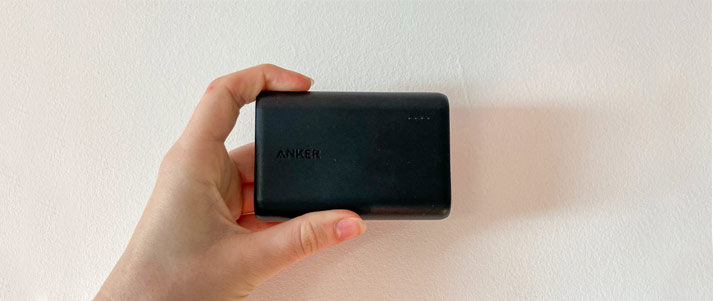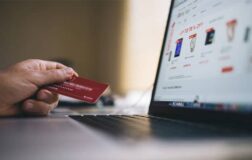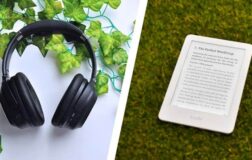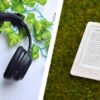20 best travel accessories 2025
No matter where you're going on holiday, these must-have travel accessories will make your trip much easier and more comfortable.
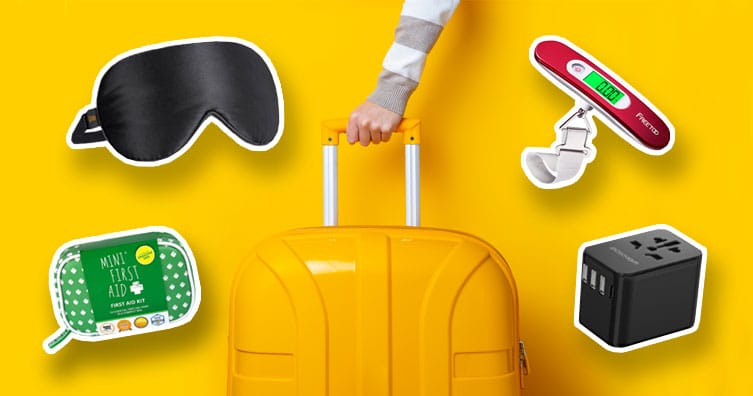
Credit: SAG stock – Shutterstock
You've booked cheap flights, sorted your accommodation and got your itinerary ready – there's not much left to do apart from packing your bags. But before you do, you may want to get some handy travel items.
From travel essentials that maximise your suitcase space to items that will help you sleep on your next flight, there are some great accessories on the market to improve your trip.
Whether you're preparing for your next adventure or searching for a gift for the travel lover in your life, our tried-and-tested list below will help.
What to take on holiday
Here are the 20 best travel accessories to check out:
-
Earplugs
Earplugs can come in handy while travelling, such as for aeroplanes, hostels or hotel rooms (if you have noisy neighbours!).
There are different types of earplugs, so it's worth considering what you'll be using them for. For example, waterproof silicone earplugs are great for swimming, while foam earplugs are more comfortable to sleep in.
One earplug brand that deserves a special mention is Earplanes – they are designed to help your ears with the changing air pressure during flights. You can use their app to see when you should put them in and when you can take them out, depending on the altitude.
Here's why I recommend Earplanes:
 My partner uses Earplanes on every flight. He struggled with ear pain during take off and landing in the past, but these earplugs take away all the stress around flying.
My partner uses Earplanes on every flight. He struggled with ear pain during take off and landing in the past, but these earplugs take away all the stress around flying.While pressure changes do still happen, it's nowhere near as much as without them. He can also still wear his noise cancelling headphones on top, so they're pretty much perfect. If you struggle with ear pains while flying, these could be the fix to the problem.
-
Sleeping mask
There is no better combination for sleep than earplugs and a sleeping mask. A good sleeping mask can make a huge difference in getting quality sleep when travelling.
Especially if you struggle sleeping in a new environment (hotel, hostel or aeroplane), using a sleeping mask can be game-changing.
They are even more useful when you're travelling to a different timezone and will have to adjust your sleeping cycle. A darkened environment can improve your sleep quality and help you avoid jet lag.
-
Luggage scale
Having to pay a fee because your suitcase is too heavy is a budget traveller's worst nightmare. Not only are the prices extortionate, but it's also totally avoidable if you bring a luggage scale.
This little device doesn't take up a lot of space and allows you to check the weight of your luggage. Simply wrap the tag around your suitcase's handle and lift it up. The scale will then tell you how heavy your bags are.
If you're over the weight limit, you can move a few bits into your hand luggage to avoid any hefty fees.
The one we use (pictured above) is a FREETOO luggage scale which is low-cost but effective. Click the link to buy yours.
-
Compression bags
Compression bags are ideal for maximising luggage space. They let you vacuum-seal your clothes, thereby reducing the size drastically.
These types of bags are especially handy for your return trip, as dirty clothes usually take up much more space than neatly folded clothes.
Pop your dirty clothes in the bag, use the pump (or a vacuum from the hotel reception) to suck out all the excess air and you'll have saved yourself tons of space.
I'm a big fan of using compression bags for any trip that requires checked luggage:
 Ever since using them for the first time on a trip to Japan, compression bags are a non-negotiable on my packing list. On this trip, I had bought quite a few sourvenirs and I had no idea how to I was going to fit them in my suitcases, as both were filled with clothes.
Ever since using them for the first time on a trip to Japan, compression bags are a non-negotiable on my packing list. On this trip, I had bought quite a few sourvenirs and I had no idea how to I was going to fit them in my suitcases, as both were filled with clothes.The compression bags allowed me to put all my clothes (two suitcases full – it was a long trip) into one suitcase. I was so impressed at how much space they saved!
-
Packing cubes
You can save even more space in your suitcase by using packing cubes. They're essentially containers that hold your clothes and other travel essentials. You can pack these cubes individually before adding them to your backpack or suitcase.
As the cubes separate your items, your suitcase will be much neater. And since you're compartmentalising and compressing your things, it'll save space in the process.
-
Travel toiletry bottles
If you're a hand-luggage-only kind of traveller, the 100ml liquid rule can cause some issues. It's particularly difficult if you want to bring your own shampoo, conditioner and skincare.
Even though there are probably 100ml versions of your favourite beauty items, they usually come at extortionate prices (especially for how little product you get). To save money in the long run, invest in a few 100ml travel bottles.
You can fill them up at home with your full-sized bottles and reuse them on future trips. It's a super easy way to save money and reduce your plastic waste at the same time. Win-win!
-
Noise-cancelling headphones
Whether you're on a loud plane, train or bus, noise-cancelling headphones can come in very handy. You can listen to audiobooks, music and podcasts without having to turn the volume all the way up to drown out the outside noise.
But even just turning on the noise-cancelling features without listening to any content can help while on the road. Eliminating loud background noise will make it much easier to get some rest.
There are quite a few noise-cancelling headphones on the market with a range of costs. Obviously, the more advanced noise-cancelling technology will come at a higher price, but there are some great budget options available.
The DOQAUS headphones come in at around £30 at the time of writing. They do a pretty good job at cancelling out background noise and are among the best gadgets for students.
However, the Sony WH-1000XM4 is among the best pair of noise-cancelling headphones out there. We've seen them on sale for around £190 but they have incredible capabilities and even come with different ambient modes.
Using noise-cancelling headphones has helped me with my flying anxiety:
 Despite being an avid traveller, I struggle with a lot of anxiety on flights. One of the things that helps me most before take off is using the Sony WH-1000XM4 headphones to cancel out all the noise around me and listen to an audiobook or my favourite songs.
Despite being an avid traveller, I struggle with a lot of anxiety on flights. One of the things that helps me most before take off is using the Sony WH-1000XM4 headphones to cancel out all the noise around me and listen to an audiobook or my favourite songs.It creates a calm space for me to not think about flying.
Flying still isn't my favourite thing in the world, but these noise cancelling headphones make it a lot easier to deal with.
-
Reusable water bottle
A reusable water bottle makes for a great eco-friendly gift as well as a handy travel accessory.
One of our favourite money-saving tips is bringing a reusable water bottle to the airport. While you can't take liquid over 100ml through airport security, you can bring an empty bottle. Once you're through security, there are stations to refill it for free.
Most large UK airports have water fountains provided by Refill, giving you access to clean drinking water for your water bottle. The Refill app also shows over 330,000 refill stations worldwide – so you'll be able to fill up your bottle even while travelling.
Make sure you know how to get compensation for delayed or cancelled flights. -
Hydrating skincare products
Anybody who's ever been on an aeroplane will know that it's not the best for your skin.
Aeroplane cabins have very low humidity, which causes your skin to dry out quickly. On top of that, the high altitude puts your skin at a higher risk of UV damage (yes, the UV rays penetrate through the window!).
Bring some of your skincare essentials on board with you to avoid arriving at your destination with less-than-ideal skin.
Some moisturiser with hyaluronic acid is a good start, but you can go even further and bring some hydrating face masks depending on how long your flight is.
It's also a great idea to bring your facial SPF to battle those stronger UV rays.
Remember that these should be below 100ml to bring them on board with you in your hand luggage.
-
Apple Airtag
If you're an iPhone user, consider getting a couple of Apple Airtags for your next trip. Pop one in your backpack or suitcase and you'll be able to track its whereabouts through your phone.
Using it in your checked luggage can calm some anxiety about your bags being left behind, as you'll always know where they are.
And if you're travelling with any valuables in your backpack, like your laptop or jewellery, it's probably a good idea to keep track of its whereabouts too.
-
Amazon Kindle
Reading on holiday hits differently. But rather than bringing a heavy stack of books in your backpack, bringing an e-reader is much easier. Not only will you be saving space and weight, but you can also keep down costs as e-books are usually cheaper than paperbacks.
The latest Kindle Paperwhite comes with 16GB of storage so can hold thousands of books. A single charge can last up to 10 weeks – more than enough for reading on holiday or the plane.
I've been using my Kindle for years, and it allows me to read way more on holiday:
 Since getting a Kindle, I've started reading way more often. It's a great way to pass the time when flying or travelling by train, and it barely takes up any space in my bag.
Since getting a Kindle, I've started reading way more often. It's a great way to pass the time when flying or travelling by train, and it barely takes up any space in my bag.On a recent trip to Greece with friends, I only bought one book on my Kindle as preperation. But when I finished it, I was able to easily buy the next books in the series to read at the pool. I ended up reading six books on my Kindle in one week!
-
Travel pillow
On long flights, a good neck pillow can be the perfect travel accessory – especially if you've ended up in the dreaded middle seat. It provides support and comfort if you want to sleep on the plane, and helps you avoid a painful stiff neck upon arrival.
When selecting your travel pillow, keep an eye on the material (filler and cover). Make sure they give enough support and are comfortable to rest your head on.
-
Compression socks
Compression socks are designed to put pressure on your lower legs. This helps maintain the blood flow – which is necessary if you're stationary for a while (on a long flight, for example).
Wearing compression socks on flights can help reduce swelling in your legs and ankles and potentially prevent blood clots from developing.
While they're not vital if you don't have any prior medical conditions, compression socks can still make long flights more comfortable.
-
Power adaptor
If you want to charge your electronic gadgets abroad (and we're guessing you do), you'll need a power adaptor. As different countries have different types of plug sockets, you won't be able to use your regular chargers without an adaptor.
While you can buy an individual adaptor for every country with a different plug, it's way easier to buy a worldwide adaptor. This way, you'll be able to use it for any international trip you're taking in the future.
This power adaptor is our favourite, as it doesn't take up a lot of space due to the slideable pins. Plus, it comes with three USB slots and one USB-C slot.
Having tried it myself, I think a power adaptor is travel essential no matter what country you visit:
 The worldwide adaptor cube is ideal for travelling because you can use it anywhere and it has enough ports to charge all your electronics overnight.
The worldwide adaptor cube is ideal for travelling because you can use it anywhere and it has enough ports to charge all your electronics overnight.I can charge my phone, camera, Apple watch and portable charger in one go. It's also ideal when I have to work abroad as my laptop charger fits into the regular slots, plus I can still charge my phone at the same time. I can't travel anywhere without it.
I even use it at home to charge my gadgets at night as it also fits in UK plug sockets. Definitely worth the money for how often I use it!
-
Hygiene travel kit
You can't always count on perfect sanitation while travelling. You may be exposed to different environments and germs, especially on public transport or on a plane. That's why every traveller needs a handy hygiene kit.
A compact hygiene kit usually includes hand sanitiser, disinfectant wipes and tissues. Some even come with biodegradable flushable toilet covers.
-
Mini first aid kit
You never know what will happen while travelling, including any accidents. While you should always have adequate travel insurance, bringing a mini first aid kit has you prepared for smaller incidents.
This 74-piece kit comes with all your essentials, including bandages, plasters, burn gel, safety pins and more. And since it's very compact, you'll be able to easily pop it in your bag when you're out exploring.
-
Portable charger
Taking travel pictures and videos along with using Google Maps and Google Translate to the fullest can drain your phone battery pretty quickly. Been there, done that.
A portable charger can therefore be a lifesaver. It's one of the best gadgets to bring on any trip.
Our favourite portable charger for travel is the Anker PowerCore 13000 because it comes with two USB ports. Ideal if you're travelling with a friend or need to charge multiple things at the same time.
-
Portable door lock/alarm
If you're staying in an Airbnb or hotel room, bringing a portable door lock/alarm can add an extra layer of security.
It's super important to feel safe while travelling in an unfamiliar environment. Having more control over that environment can help you feel more at ease – it's much nicer to sleep in a room that you feel safe in.
Especially for solo travellers, a portable door lock and alarm are essential travel items.
The door stop will not only make it harder to open the door, but the built-in alarm will go off if someone tries. The door lock, on the other hand, can be put on the door handle, locking it from the inside.
-
Toothbrush travel case
You wouldn't want to brush your teeth with a toothbrush that's touched the insides of your toiletry bag/suitcase, right? Keep your toothbrush safe from any germs with a toothbrush holder.
You can get some pretty decent ones for only a few quid, so there's really no excuse not to protect your toothbrush on your next trip.
-
Luggage tag
Even if you're tracking your checked luggage with your Airtags, you'll still need to make sure they have a luggage tag with your information. In case your suitcase ends up being misplaced or left behind at the airport, these tags can help identify it and prove that it belongs to you.
It's best to include your full name and a way to get in contact with you – your email address and phone number, for example.
Some people include their home addresses, but that's not always the safest thing to do. If someone finds your luggage with your address on it, nothing is stopping them from visiting it while you're on holiday.
As long as the person who finds your luggage can contact you by email or phone, it should be fine.
See our tips on how to get free or cheap airport lounge access for your next flight.

